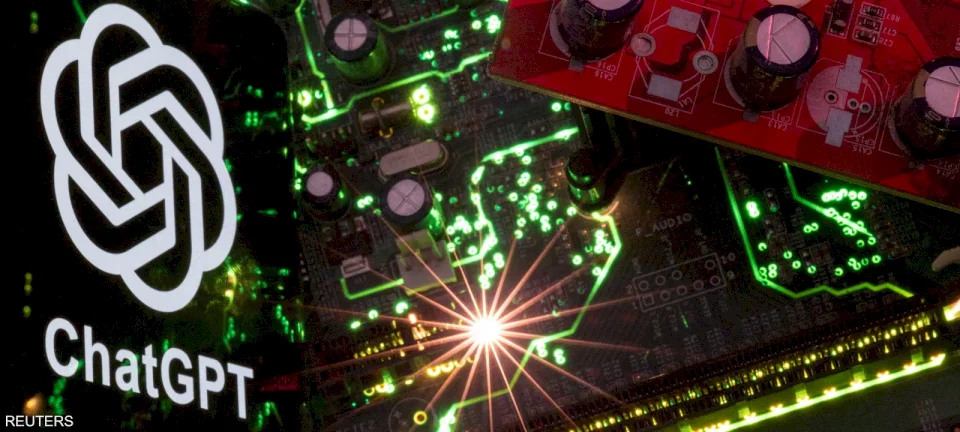
OpenAI Unveils GPT-5, Calling It a "Major Leap in Intelligence"
Economy SadaNews - OpenAI, the developer of ChatGPT, has launched the next generation of its software amid competition among artificial intelligence companies.
The GPT models from OpenAI are the technology behind the famous chatbot "ChatGPT" and the company confirmed that "GPT-5" will be available to all of the 700 million users of ChatGPT.
The launch of "GPT-5" comes at a critical time for the artificial intelligence industry, as the largest global companies in this field - such as "Alphabet" (owner of Google), "Meta" (owner of Facebook), "Amazon", and "Microsoft" (which supports OpenAI) - have significantly increased their capital spending to build data centers dedicated to artificial intelligence, which has bolstered investors' hopes for substantial returns. These four companies are expected to spend nearly $400 billion in the current fiscal year.
Sam Altman, CEO of OpenAI, stated in a press release on Thursday: "GPT-5 represents a major leap in intelligence compared to all our previous models."
PhD-Level Expert
The previous release, GPT-4, communicated at a college student level. However, GPT-5, on the other hand, is like an expert holding a PhD in any subject, as promised by Altman.
The ChatGPT chatbot will be powered by GPT-5 even for users in the free version in the future.
Altman said that the era of GPT-5 will be characterized by the ability to create "custom software".
The hype around artificial intelligence began with the launch of ChatGPT at the end of 2022.
In demonstrations provided by the company on Thursday, it showcased how "GPT-5" can create fully functional integrated software based solely on written text commands in a process known as "Vibe Coding".
One key success indicator will be the qualitative superiority that "GPT-5" offers compared to "GPT-4" and whether it is akin to the previous leaps made by research labs.
Experts told Reuters that the new model amazed them with its programming and capabilities for solving scientific and mathematical problems, but they believe that the leap from GPT-4 to GPT-5 has not been as significant as the advancements seen in previous releases.
Even with this improvement, "GPT-5" is still unable to fully replace humans, as Altman clarified that the model does not yet possess the ability for self-learning, a key feature for enabling artificial intelligence to match human capabilities.
In addition to OpenAI, companies like Anthropic, Elon Musk's X AI, and tech giants Google and Meta are competing for leadership in the future of artificial intelligence.
Meanwhile, Microsoft is collaborating with OpenAI and announced that it will integrate GPT-5 into its products.
It is noted that OpenAI is in preliminary talks regarding a potential deal to sell a portion of its shares for the benefit of current and former employees, based on the valuation of the non-public company at $500 billion, which represents a significant increase in its market value.
More Thinking
About three years ago, "ChatGPT" introduced the world to the concept of generative artificial intelligence, dazzling users with its ability to write prose and poetry in a human-like style, becoming one of the fastest-growing applications in history.
In March 2023, OpenAI introduced the "GPT-4" model, which is highly advanced compared to its predecessor. In a bar exam test, the previous release "GPT-3.5" received a poor score placing it among the bottom 10% of candidates, while "GPT-4" managed to achieve a high score placing it among the top 10% of candidates.
This leap was due to increased computational power and the volume of data used in training, and the company hoped to continue "expanding" in this manner to consistently improve the models.
However, OpenAI faced challenges in scaling, notably the "data wall" that its former chief scientist Ilya Sutskever pointed out last year, explaining that despite the growth in computational power, the volume of data was no longer increasing.
This is because large language models are trained on massive datasets that cover the entire internet, and AI research labs do not have other large sources of human textual data.
Alongside the data shortfall, another issue is that the "training sessions" for large models are prone to technical failures due to system complexity, and researchers may not know the actual performance of the model until the end of the training cycle, which could take months.
Meanwhile, OpenAI has discovered another path towards more advanced AI known as "Test-Time Compute", a method that allows the model to spend more computational time "thinking" about each question, enabling it to solve complex problems, such as mathematical operations or issues that require advanced reasoning and decision-making capabilities.
"GPT-5" acts as a prompt, so if it encounters an extremely difficult question, it utilizes "Test-Time Compute" to answer it. This is the first time the public has access to this technology, which Altman considers a fundamental element in the company's mission to build AI that benefits all of humanity.
Altman believes that the current investment in artificial intelligence is still not sufficient, adding: "We need to build a far larger infrastructure globally to make AI locally accessible in all these markets."

The Problem of Shekel Overcrowding Worsens.. Fuel Station Owners Threatened with Closure o...

The Palestinian Economy at a Crossroads: 4 Files Awaiting Resolution

Mas Institute Publishes New Study on "Political Economy and Challenges of Palestinian Deve...

A Strong Blow to Smotrich: The Knesset Abolished Doubling the VAT Exemption for Online Pur...

Exchange Rates of Currencies Against the Shekel on Tuesday (February 24)

Oman: Ministerial Decision to Establish the "Palestinian Endowment Foundation" with a Capi...

Newspaper: 'Peace Council' Prepares Plan to Launch 'Digital Currency' for Gaza Aimed at Dr...
